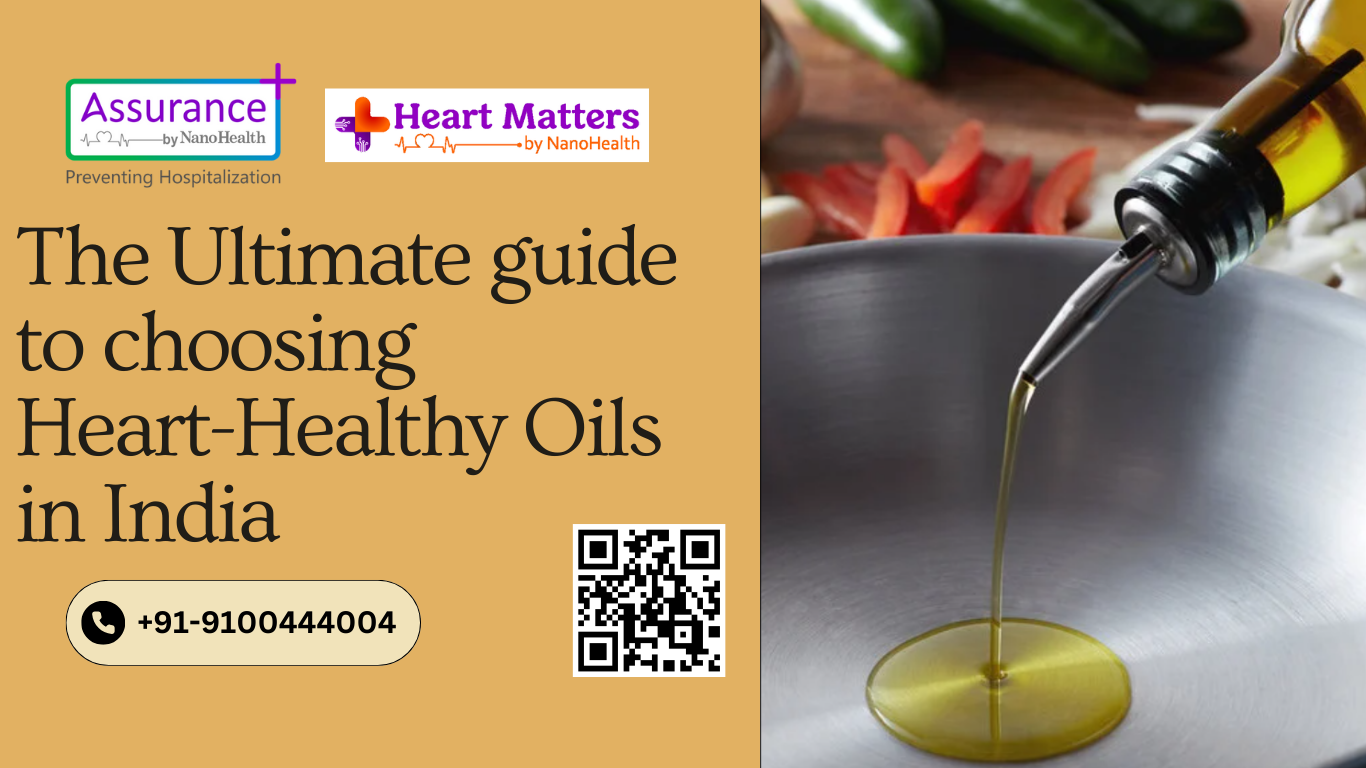

Heart disease is on the rise in India, affecting individuals as young as 30. A National Crime Records Bureau report showed a 54% increase in heart attack deaths between 2012 and 2022, with 70% of these fatalities occurring in people aged 30 to 60. Amidst these alarming statistics, one dietary component is often overlooked: the choice and usage of cooking oils.
Understanding Types of Oils and Their Health Impact
Cooking oils play a vital role in our diet, providing essential fatty acids and nutrients. However, not all oils are heart-friendly. Oils rich in monounsaturated fatty acids (MUFA) and polyunsaturated fatty acids (PUFA) help improve cholesterol levels by increasing HDL (good) cholesterol and reducing LDL (bad) cholesterol. Conversely, oils high in saturated fats can elevate LDL, contributing to clogged arteries and cardiovascular issues.
Top Heart-Healthy Oils and Their Recommended Uses
- Sesame Oil
○ Best Use: Ideal for low to medium-heat cooking.
○ Health Benefits: High in antioxidants, sesamol, and sesamin, which reduce blood pressure and oxidative stress. Its balanced MUFA and PUFA profile supports heart health.
- Mustard Oil
○ Best Use: Excellent for sautéing, stir-frying, and other medium-heat cooking.
○ Health Benefits: Boasts a balanced omega-6 to omega-3 ratio, helping regulate cholesterol and prevent inflammation.
- Olive Oil (Extra Virgin)
○ Best Use: Ideal for drizzling on salads or low-heat cooking.
○ Health Benefits: Rich in MUFA and antioxidants, which reduce inflammation and support heart health.
- Rice Bran Oil
○ Best Use: Great for frying and high-temperature cooking due to its high smoke point.
○ Health Benefits: Contains gamma-oryzanol, which lowers cholesterol and supports cardiovascular health.
- Sunflower Oil
○ Best Use: Suitable for moderate-heat cooking and baking.
○ Health Benefits: High in vitamin E and PUFA, aiding in cholesterol regulation and providing antioxidant benefits.
- Soybean Oil
○ Best Use: Works well in dressings and for low-heat cooking.
○ Health Benefits: Contains polyunsaturated fats, vitamins E and K, and is popular for its heart-healthy benefits. Use it fresh due to its susceptibility to rancidity.
How Much Oil is Healthy?
The ideal daily intake of oil for an adult is around 3-4 teaspoons per day (15-20 ml). Excessive oil, even healthy oils, can lead to weight gain and cholesterol issues. When preparing meals, use a small amount of oil for cooking and consider low-oil cooking methods, such as grilling, steaming, or baking, to keep oil consumption within healthy limits.
● Avoid High-Heat Cooking: Heating oils beyond their smoke points can degrade nutrients and create harmful trans fats. Use oils with a high smoke point for frying (e.g., rice bran or groundnut oil) and low smoke-point oils, like extra virgin olive oil, for dressings or low-heat cooking.
● Rotate and Blend Oils: No single oil has the perfect fatty acid profile, so using a variety of oils is a smart approach. Alternate oils like mustard, sesame, and olive oil to get the benefits of different types of fats.
● Minimize Reuse: Reusing oils repeatedly, especially for deep frying, can produce unhealthy compounds. Dispose of oil after 2-3 uses to avoid trans fat formation.
Refined Oils: Why They’re Best Avoided
Refined oils are often treated with chemicals and exposed to high temperatures, stripping away beneficial nutrients and antioxidants. This process creates free radicals and trans fats, which can contribute to inflammation, oxidative stress, and heart disease. Cold-pressed oils, on the other hand, retain their nutrients and natural antioxidants because they’re processed at low temperatures without chemicals.
Final Thoughts
Incorporating heart-healthy oils in your diet and using them mindfully can significantly improve cholesterol levels and reduce cardiovascular risks. Opt. for natural, unrefined oils like cold-pressed sesame, mustard, and olive oil, practice portion control, and avoid high-heat cooking to maximize the health benefits. These small choices add up to a big impact on heart health, helping you stay proactive about your well-being.